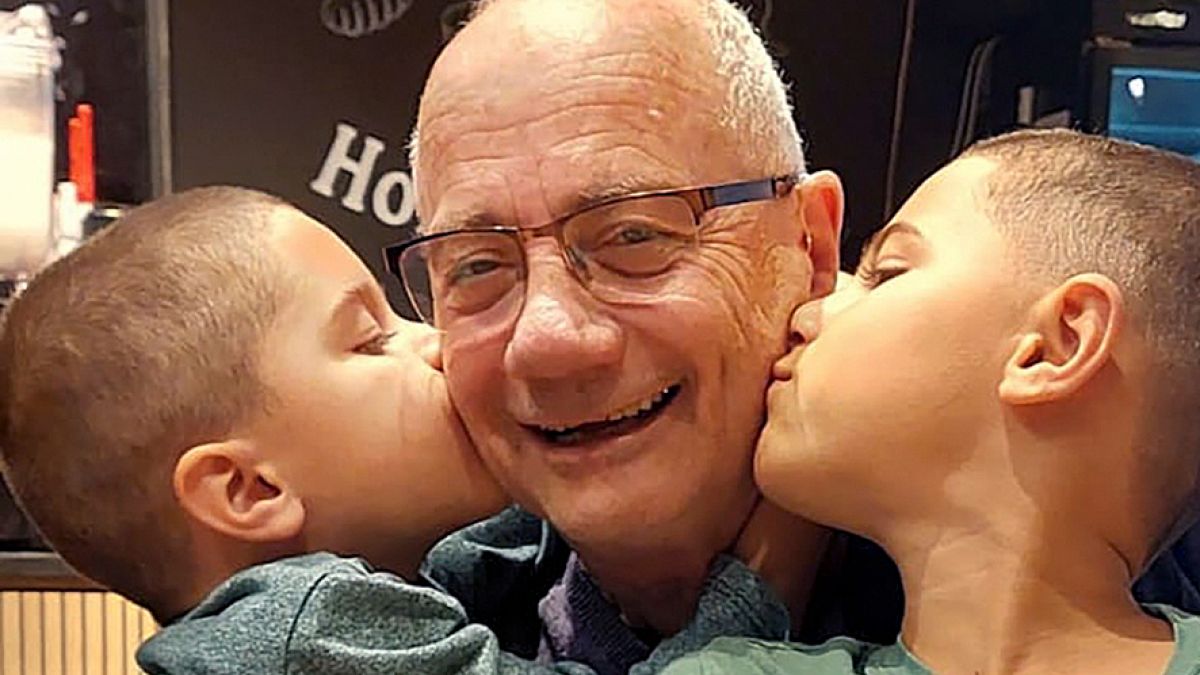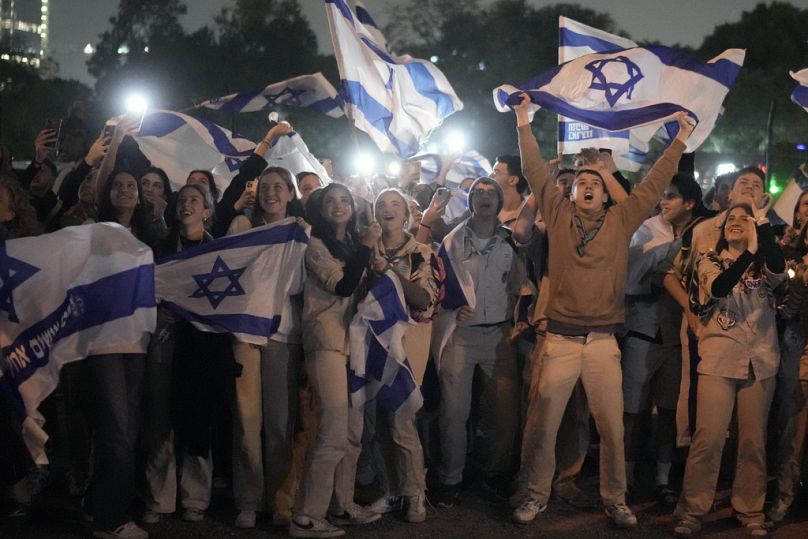The Palestinian militant group previously told reporters it was in favour of a "two to four" day extension of the deal.
A fragile ceasefire between Israel and Hamas entered its fourth and final day on Monday, amid ongoing talks to extend the deal that has secured the release of hostages, prisoners and emergency aid in the Gaza Strip.
An Israeli government spokesperson said Israel had offered the Palestinian militant group an "option" to extend the agreement, which is due to expire Tuesday at 07:00.
The warring parties are working on the details of a possible extension, according to Egyptian security sources.
"Israel insists on renewing the truce day after day", while international mediators - Qatar, United States and Egypt - have proposed a pause in the fighting for "several days", they told AFP.
On Sunday, Hamas freed 17 hostages, including 14 Israelis and the first US national. Most hostages were handed over directly to Israel, waving to a cheering crowd as they arrived at an air force base. Others left through Egypt.
In turn, Israel released 39 Palestinian prisoners - mostly teenage boys accused of throwing stones at Israeli soldiers or property damage.
Overnight from Sunday to Monday, Hamas said it wanted to extend the truce "beyond four days" with the aim of freeing more prisoners than originally planned.
Negotiated by Qatar, with the support of Washington and Cario, the agreement came into force on Friday.
It established a four-day pause in fighting, the passage of aid into Gaza and the release of 50 hostages (out of more than 200 still held in Gaza) in exchange for 150 Palestinians imprisoned in Israel.
Since Friday, 39 hostages have been released under the agreement, as well as 117 Palestinian prisoners, at a ratio of one hostage to three prisoners.
The youngest freed hostage was Abigail Edan, a 4-year-old girl and dual Israeli-US citizen whose parents were killed in Hamas' deadly raid in southern Israel on 7 October.
“What she endured was unthinkable,” US President Joe Biden said in response to news of her release. He did not know her condition and did not provide updates on other US hostages.
Biden said his goal was to extend the ceasefire deal as long as possible.
In all, nine children ages 17 and younger were on the list, according to Israeli Prime Minister Benjamin Netanyahu’s office.
In a statement, Netanyahu said Israel would resume its offensive "with all of our might" once the truce expires. Ahead of the latest hostage release, he donned body armour and visited the Gaza Strip, where he spoke with troops.
“At the end of the day we will return everyone,” the Israeli leader said about the hostages, adding that “we are continuing until the end, until victory. Nothing will stop us.”
Twenty-four hostages were also freed outside of the agreement. These were mostly Thais who worked in Israel.
The Palestinian prisoners released were children and young men - mostly between ages 15-19 - largely accused of public disorder, property damage and in some cases causing or threatening physical harm to Israeli officers by throwing stones and Molotov cocktails.
Many were scooped up from protests and confrontations with troops.
Palestinians largely view prisoners held by Israel, including those implicated in attacks, as heroes resisting occupation.
A fourth exchange is planned on Monday - the last day of the truce unless an extension is secured.
This is the first significant pause in seven weeks of war, marked by the deadliest Israeli-Palestinian violence in decades.
More than 13,300 Palestinians have been killed, roughly two-thirds of them women and minors, according to Gaza's health ministry.
The war has claimed more than 1,200 Israelis, mostly civilians killed in the initial attack.

